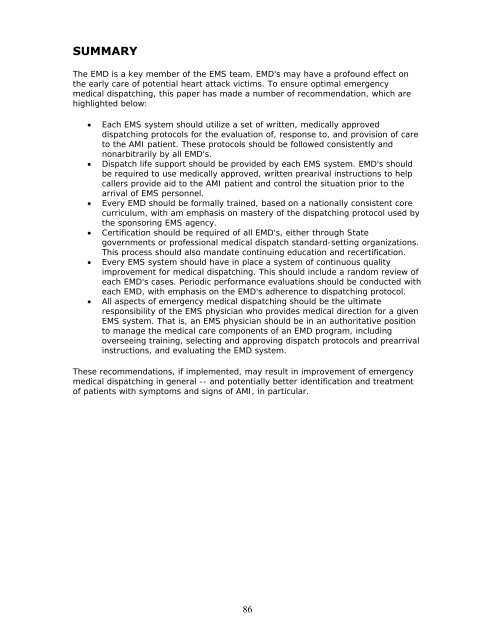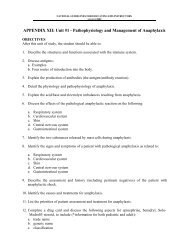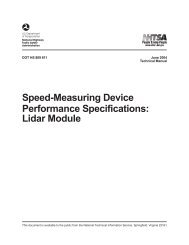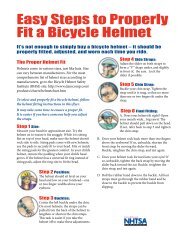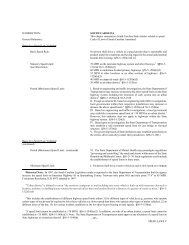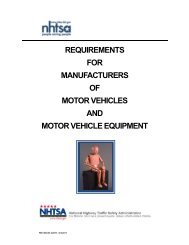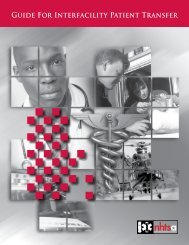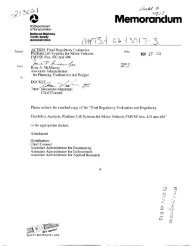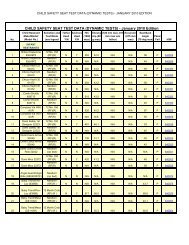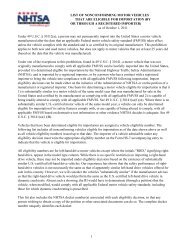Standard Practice for Emergency Medical Dispatch ... - NHTSA
Standard Practice for Emergency Medical Dispatch ... - NHTSA
Standard Practice for Emergency Medical Dispatch ... - NHTSA
Create successful ePaper yourself
Turn your PDF publications into a flip-book with our unique Google optimized e-Paper software.
SUMMARY<br />
The EMD is a key member of the EMS team. EMD's may have a profound effect on<br />
the early care of potential heart attack victims. To ensure optimal emergency<br />
medical dispatching, this paper has made a number of recommendation, which are<br />
highlighted below:<br />
• Each EMS system should utilize a set of written, medically approved<br />
dispatching protocols <strong>for</strong> the evaluation of, response to, and provision of care<br />
to the AMI patient. These protocols should be followed consistently and<br />
nonarbitrarily by all EMD's.<br />
• <strong>Dispatch</strong> life support should be provided by each EMS system. EMD's should<br />
be required to use medically approved, written prearival instructions to help<br />
callers provide aid to the AMI patient and control the situation prior to the<br />
arrival of EMS personnel.<br />
• Every EMD should be <strong>for</strong>mally trained, based on a nationally consistent core<br />
curriculum, with am emphasis on mastery of the dispatching protocol used by<br />
the sponsoring EMS agency.<br />
• Certification should be required of all EMD's, either through State<br />
governments or professional medical dispatch standard-setting organizations.<br />
This process should also mandate continuing education and recertification.<br />
• Every EMS system should have in place a system of continuous quality<br />
improvement <strong>for</strong> medical dispatching. This should include a random review of<br />
each EMD's cases. Periodic per<strong>for</strong>mance evaluations should be conducted with<br />
each EMD, with emphasis on the EMD's adherence to dispatching protocol.<br />
• All aspects of emergency medical dispatching should be the ultimate<br />
responsibility of the EMS physician who provides medical direction <strong>for</strong> a given<br />
EMS system. That is, an EMS physician should be in an authoritative position<br />
to manage the medical care components of an EMD program, including<br />
overseeing training, selecting and approving dispatch protocols and prearrival<br />
instructions, and evaluating the EMD system.<br />
These recommendations, if implemented, may result in improvement of emergency<br />
medical dispatching in general -- and potentially better identification and treatment<br />
of patients with symptoms and signs of AMI, in particular.<br />
86


